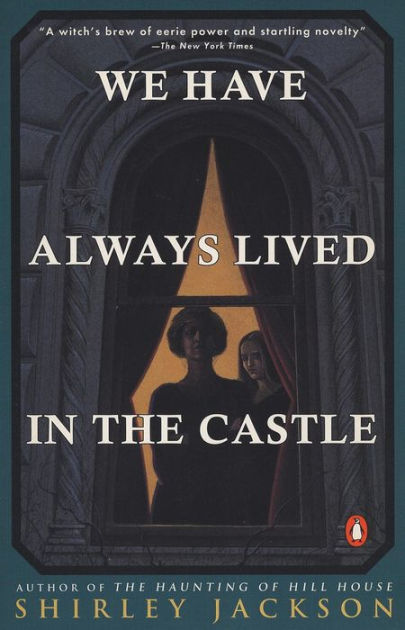Eeriness & Whimsy Collide in We Have Always Lived in the Castle
- Sep 29, 2019
- 2 min read

The occult, the maddened, and the dark have always weighed on our minds. We devour ghost stories, murder mysteries, and haunted houses voraciously, but what does our consumption spell for the ghosts, people, and houses themselves? In our gossip and retelling, how do we cast events the way we want to see them? How has our own interest affected the truth? Where do ghost stories and haunted houses come from?
Shirley Jackson turns her lens on one house and family, examining the ways in which such stories arise, agoraphobia and the feral obsession with death, and sisterly bonds that refuse to break.
Several years ago, almost everyone in the Blackwood family dies from a poisoned meal - arsenic slipped into the sugar bowl. The sole survivors, Constance, Mary Katherine (Merricat), and Uncle Julian, leave the night physically unscathed but mentally addled. Constance, as the chef for the family meal that night, is the main suspect, but the police can't find enough solid evidence to incriminate her. Released, Constance returns to the Blackwood manor, where she builds a life with Merricat and Uncle Julian.
Their days are ones of strict, yet sundappled routine: they have specific days for cleaning, hosting visits from their few remaining acquaintances on, and venturing into the village, where Merricat suffers from the villagers' relentless gossip, stares, and outright malice.
Merricat detests anything that interrupts their quiet routine, so when their distant cousin Charles arrives on their doorstep asking to stay for a few days, she is instantly suspicious.
Charles's interest in the beautiful Constance and the family's riches further disturbs her, as does Constance's shifts in personality with his presence. Merricat sets to drive him out of their house on a Thursday (her most powerful day), taking talismans from his room to nail to trees and crafting magic words that will offer her and Constance protection.
It isn't until another accident in the Blackwood manor that Charles is finally ejected, and Merricat and Constance's routines change forever.
Shirley Jackson is famous for her short story "The Lottery," which is required reading for most American high schoolers, but I didn't make the connection until I finished reading We Have Always Lived In the Castle.
Now, I see the connections: a slightly eerie setting, a young girl at the center of a simple-minded mob's wrath. But while "The Lottery" is wholly bleak, We Have Always Lived In the Castle is spared the same fate by Merricat, the narrator of the novel.
Merricat's voice is almost childlike, playful and whimsical but also deeply observant and full of strong convictions. She talks to her cat, has a specific corner of the kitchen in which she likes to curl, buries amulets around the house as a protection barrier, and imagines bashing people's heads into walls, strangling them, etc. Typical 18-year-old things. Her touch breathes over the novel, injecting the strangeness with a strangeness of her own that lightens the tone.
The balance of strangeness and light makes the final words, uttered in sun, cloaked by house's shadow looming overhead.
8/10 📕



Comments